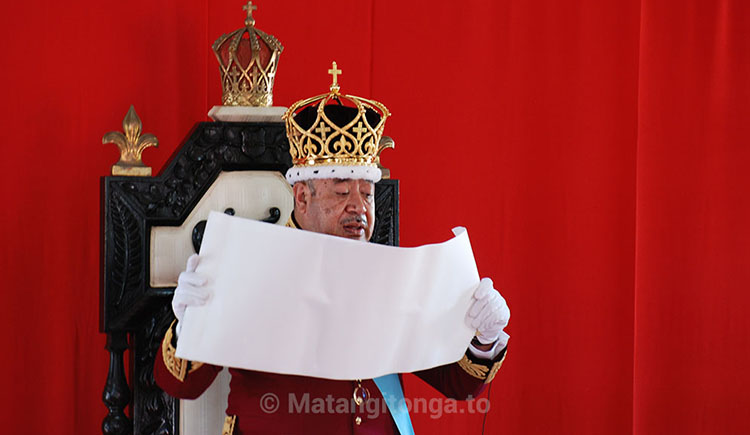
FROM OUR ARCHIVES:
When George Tupou V surrendered the Executive Power to the Prime Minister in 2010, does it mean he wanted to remain only as a ceremonial and symbolic monarchy without any political power? Why did he appoint the Lords? Without a proper assessment of the answers to those two questions, the present leaders of the PTOA (Paati Temo Otumotu Anga’ofa) movement do injustice to the democratic and political reform that the late king had initiated.
I’d argue that the late King George Tupou V was a master political chess player. He took a Machiavellian move while keeping his friends close, he brought his enemies closer. He confused his “enemies” by making them feel better as if he is taking sides with them as he brilliantly accepted the challenge from Akilisi Pohiva and his followers that Tonga should be like England. He surrendered the Executive Power. However, he strategically reformed the British system to sustain the political power of the Tongan monarchy by appointing the Lords and strengthening the Privy Council. He left that to us to figure out our next steps.
The PTOA leaders want to eliminate, if not reduce, the Privy Council’s power, and yet there is no attempt to reform our parliamentary system, like England, to become bicameral. As everyone knows, the British Parliament is composed of two houses: the House of Commons and the House of Lords. The House of Commons is made up of Members of Parliament (MP) who are elected by the public in general elections. The House of Lords is a combination of appointed and hereditary members. Their role is to revise and review the House of Commons' proposed legislation.
The primary reasons for the House of Lords are: first, we need “wise people” in politics who participate in nation-building without being controlled by political bias or fear. Second, having the House of Lords helps assess and may reject legislation that may be politically motivated. That’s why the British Parliament has seats for religious leaders, former trusted politicians, or nobles in the House of Lords.
Should we follow the PTOA plan in a one-house parliamentary system, the Prime Minister will be the sole Legislator since he oversees his party members, who will vote wherever the PM goes. He will be the Executor of the law (Executive), and we hope he will not be the Interpreter of the law (Judiciary).
The PTOA wants Tonga's democracy to be decided by the popular vote, which is not wise. Aristotle disliked the popular vote for fear of being controlled by the unlearned. American founding fathers saw the danger of the popular vote, so they established the electoral college, and created a republic. England sustained the House of Lords for the danger of popular vote, and King George Tupou V strengthened the Privy Council for the same reason.
Many academics and religious leaders parted with Tongan PTOA for they saw the dangers of where we are heading as a nation should we follow the PTOA plan.
May I suggest to the PTOA leaders to call your educated leaders for a convention and dive into the details of democracy because that’s where the devil hides. Study the whys in the UK and USA political structure and think long term of their ramifications.
America is accurately called by academics as “a federal constitutional republic with democratic principles.” England is known as a constitutional monarchy with a parliamentary democracy. Tonga’s political reform should continue as a constitutional monarchy with a democratic parliament and democratic principles.
In short, Tonga’s political system should be known as the Democratic Constitutional Monarchy—a democracy made by Tongans for Tongans.
The late King George Tupou V has given us the blueprint for reform. Let's follow his plan.
Seni Penitani
Nomuka



